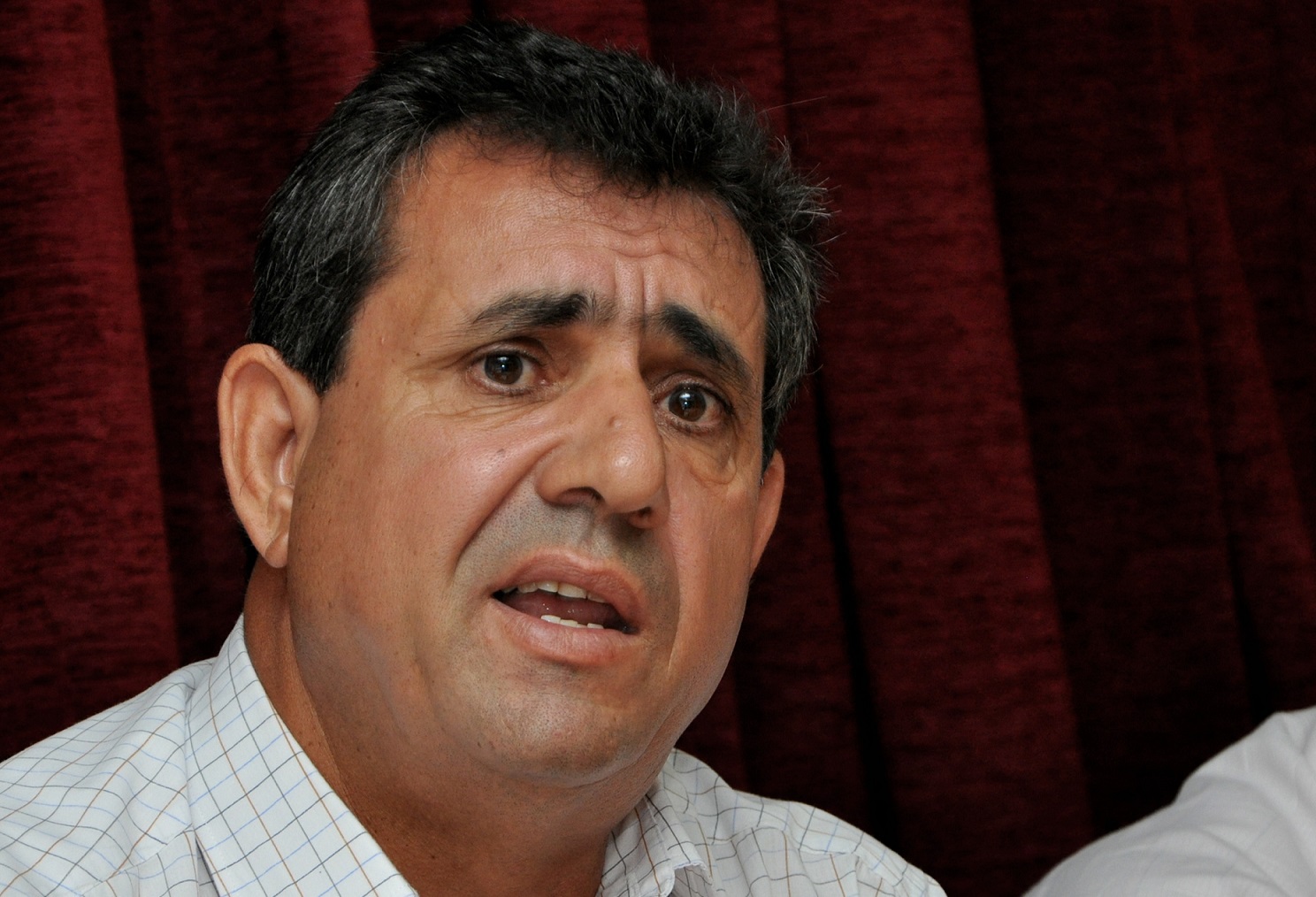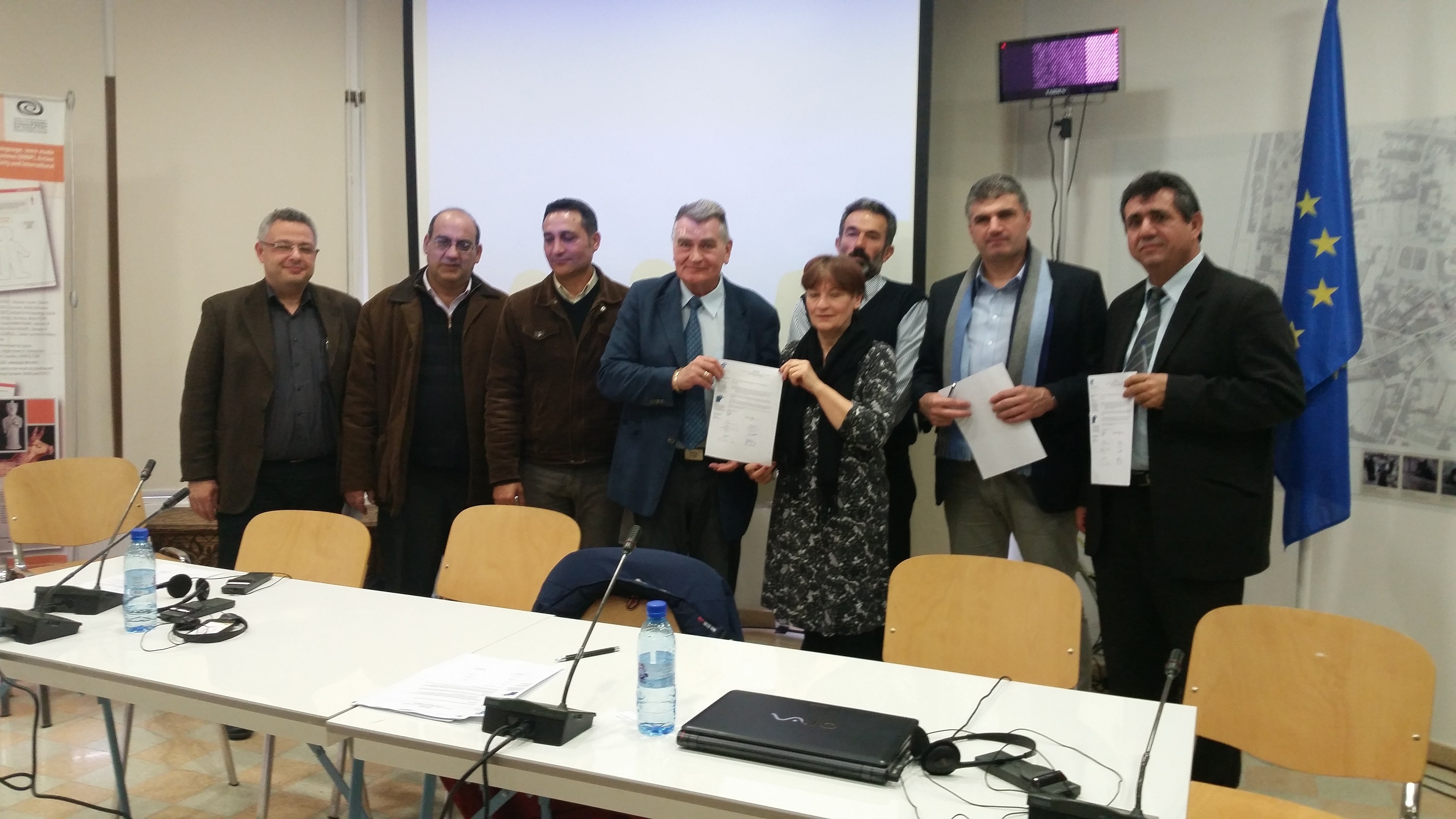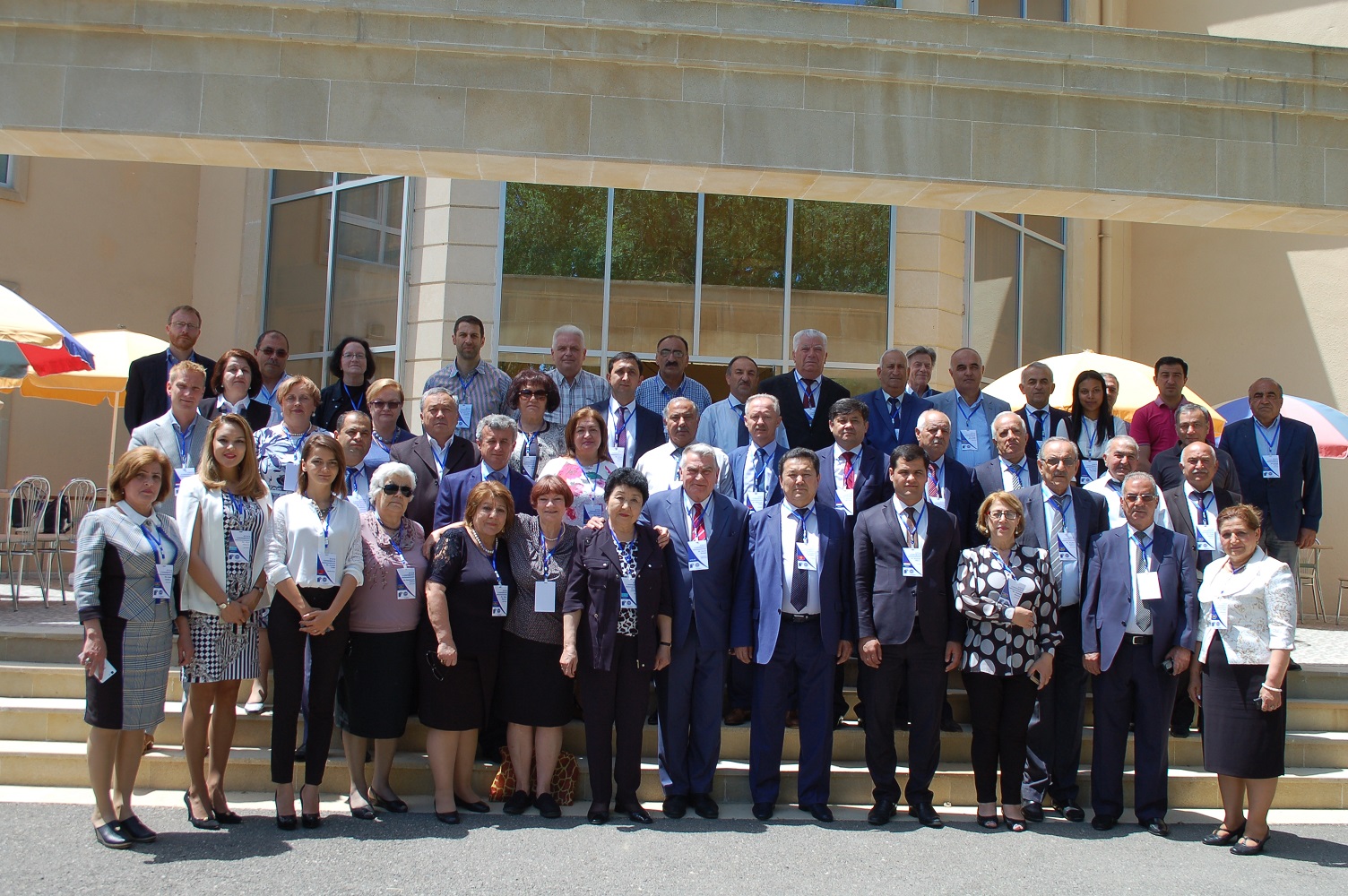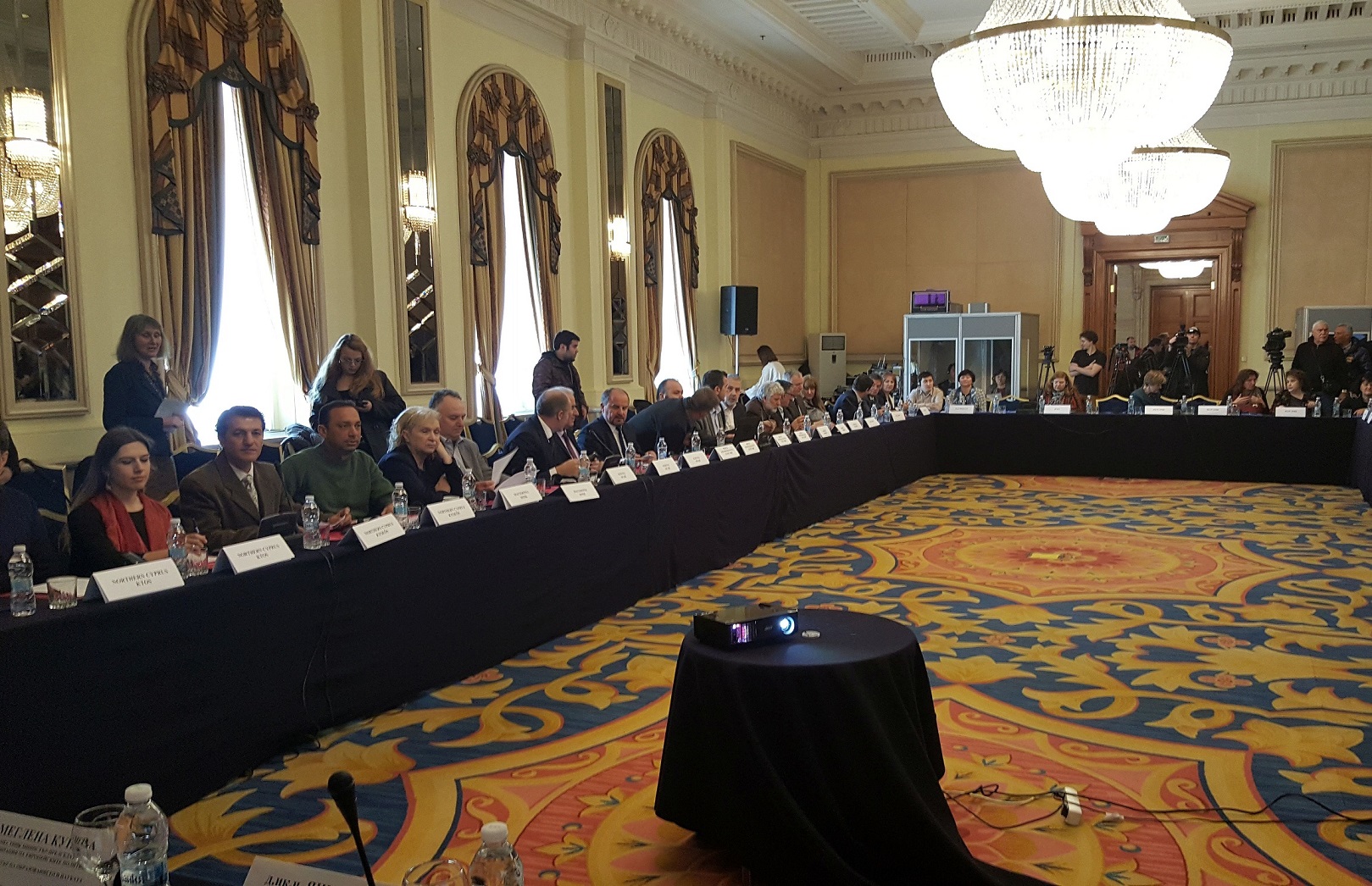Peace Education

UNICEF defines Peace education as “the process of promoting the knowledge, skills, attitudes and values needed to bring about behaviour change that will enable children, youth and adults to prevent conflict and violence, both overt and structural; to resolve conflict peacefully; and to create the conditions conducive to peace, whether at an interpersonal, intergroup, national or international level”.
Introduction
ETUCE actively contributes to the promotion of common values such as peace, mutual respect, solidarity and democracy in the education sector. All these pillars of modern and democratic societies can be stated in two words – Peace Education.
On 10 January 2015, in the field of peace education, ETUCE successfully contributed to the signing of a historic agreement on cooperation between all six education trade unions in Cyprus representing the Greek Cypriot and Turkish Cypriot Communities which came following several failed attempts during the previous 14 years.
In the shadow of the terror attacks in Brussels, on 25 March 2016 the Bulgarian Teacher Union (SEB) held the Balkan Conference on peace education where education trade unions from Slovenia, Bosnia and Herzegovina, FYROM, Albania, Cyprus and of course Bulgaria gave their significant input to the importance of the topical issue.
In the light of current critical situations putting peace at risk worldwide it is important to promote and provide students as well as teachers with skills and knowledge on peacebuilding, prevention of conflicts and resolving the occurrence of conflicts in a peaceful way. To that end, ETUCE in cooperation with its member organisation in Azerbaijan, the Independent Trade Union of Education Workers of the Azerbaijan Republic (AITUCEW), organised a conference titled “Strengthening the capacity of education trade unions to contribute to the promotion of education as a tool for creating friendly, tolerant and peaceful education environment” on 2 and 3 June 2016 in Nabran, Azerbaijan.
Following the successful conference and on member organisations’ request to launch a separate section on ETUCE website, ETUCE dedicated this banner to disseminate good practices and lessons learned and to provide all ETUCE member organisations with the opportunity to learn more about peace education and to promote it at national levels as well as to contribute to the achievement of Sustainable Development Goals, in particular Target 4.
ETUCE hopes to encourage education trade unions to share suggestions in order to promote peaceful and democratic environment in pedagogical communities.
Awards
 Mr Şener Elcil, General Secretary of KTOS (Cyprus Turkish Teacher Trade Union), one of ETUCE Member organisations in Cyprus, has been awarded the 2016 European Citizen’s Prize for his continuous efforts put in the development of mutual understanding and peace, and for his strong advocacy for free quality education.
Mr Şener Elcil, General Secretary of KTOS (Cyprus Turkish Teacher Trade Union), one of ETUCE Member organisations in Cyprus, has been awarded the 2016 European Citizen’s Prize for his continuous efforts put in the development of mutual understanding and peace, and for his strong advocacy for free quality education.
Since 2008 the European Parliament awards the European Citizen’s Prize every year to individuals and initiatives that facilitate cross-border cooperation or promote mutual understanding within the EU. It is awarded upon nominations of Members of European Parliament and intended to acknowledge the work of those who through their day-to-day activities promote European values.
The national award ceremonies will be followed by a central ceremony, to be held in October in the Parliament in Brussels.
ETUCE would like to take this opportunity to congratulate Mr Elcil upon this award showing deserved recognition for his commitment in favour of a more just and fair society throughout his career.
Cooperation Agreement

On 10th January 2015, all 6 Teacher Unions in Cyprus representing the Greek Cypriot and Turkish Cypriot Communities signed a historic agreement about cooperation. The agreement comes after several attempts have been made during the last 14 years.
The agreement includes a rotation between the two Communities on the country seat in the ETUCE Committee for periods of 2 years. Furthermore, all unions have subscribed to common meetings of preparation, information and follow-up. The agreement comes into force as from the ETUCE Committee meeting on 18-19 March 2015.
Several contacts and pre-meetings have been arranged ahead of the final meeting with the participation of the European Director, Martin Rømer.The ETUCE President, Christine Blower, chaired the final meeting and said while adjourning the meeting: "This is clearly a historic moment and it shows the great courage of all the unions. There is no doubt that this agreement can have a positive impact on the current situation in Cyprus."
The Unions also considered discussing a similar rotation for the Sector Social Dialogue Committee, however, due to the complexity in this issue, it is foreseen to be discussed with the assistance of ETUCE during the next 2 years.A number of issues for possible further cooperation between the unions were listed in the fields of education, culture and social areas. The unions agreed to setup a working party to make a short list for possible implementation before the 19 March.
At the end of the meeting, European Director, Martin Rømer, stated: "This seems like a small step forward, however the significance of this agreement cannot be underestimated. It represents real progress for all involved with a progressive perspective."
Conferences on Peace Education

On 2 and 3 June 2016, ETUCE in cooperation with its member organisation in Azerbaijan, the Independent Trade Union of Education Workers of the Azerbaijan Republic (AITUCEW) organised a conference titled “Strengthening the capacity of teacher trade unions to contribute to the promotion of education as a tool for creating friendly, tolerant and peaceful education environment”. In this context, the conference addressed important topics such as conflict resolution and the promotion of joint values such as peace, tolerance, nonviolence and respect in the education sector.
The Conference gathered delegates from ETUCE member organisations in Western as well as Central and Eastern Europe. The ETUCE President Christine Blower welcomed all conference participants and she thanked the colleagues in Azerbaijan and the ETUCE Secretariat for the organisation of the event on behalf of all guests.
At the panel discussion, ETUCE member organisations from Albania, Azerbaijan, Bulgaria and Germany shared their experiences providing a broad overview of activities promoting peace education and nonviolence conducted in their countries.
Nevrus Kaptelli, the President of the Independent Trade Union Education of Albania, SPASH-ITUEA, said: “In the education sector our priority as a trade union is to raise awareness among the teachers on the importance of establishing a strong fundament which the values of peace in the mind of each student can be built on”.
Bulgarian Teacher Union (SEB) President Yanka Takeva underlined that for more than twenty years SEB has been successfully working on problems associated with the impact of aggression and violence in kindergartens and schools.
The Deputy Minister of Education of the Republic of Azerbaijan, Firudin Gurbanov attended the conference on behalf of the Minister of Education. Gurbanov emphasized the importance of the two topics and the key role of education in the prevention of different types of conflicts. He informed the participants that 2016 was the year of multiculturalism in Azerbaijan. According to Gurbanov a number of events related to peace education promotion through multiculturalism are to be conducted among students in cooperation with teacher trade unions.
Agil Dadashov, the Vice-President of the Azerbaijani Trade Union Confederation, outlined the central role of teacher trade unions in the promotion of peace education as well as the importance of its wide media coverage.
Invited speakers from Bulgaria, Cyprus, the Netherlands, Norway and the United Kingdom provided the participants with more information to support in-depth understanding of the topic and its role in shaping societies with values of peace, tolerance and mutual respect.
In his presentation Dr. Rens Willems from the University for Peace, UPEACE Centre The Hague, the Netherlands, stated: “Education can provide young citizens with the skills to tackle challenges of conflict and development at local, national and global levels”. Dr. Gearoid Millar from the Institute for Conflict, Transition, and Peace research (ICTPR), University of Aberdeen, the United Kingdom, outlined that it had long been recognised that education communicates or transmits to students more than what is explicitly included in lesson plans or tested in exams. Education also transmits or communicates a ‘hidden curriculum’. Social and moral lessons for life that is modelled within the education system and transmitted invisibly. Dr. Michalinos Zembylas from the Open University of Cyprus said: “Teachers and students need to develop the skills of critical analysis rather than ‘knowledge’ ”. Prof. Magnus Haavelsrud from the Norwegian University of Science and Technology, Trondheim, explained to the participants the different types of nonviolence such as non-resistance, active reconciliation, moral resistance, passive resistance, peaceful resistance and etc. In her presentation via Skype, Prof. Tatyana Dronzina from St. Kliment Ohridski University of Sofia, underlined that education for peace should acknowledge students about existing social differences, instead of trying to conceal them. It should also explain the resulting obligations and responsibilities.
All speakers gave comprehensive and very interesting presentations and built the ground for discussions on how member organisations and ETUCE could come further on the issues of Peace Education. It was concluded, that ETUCE will make sure to dedicate space on the website for member organisations to share best practices.
At the Conference’s concluding session ETUCE European Director Martin Rømer said: “As teachers we have a huge responsibility to teach young people about alternatives by showing that there are better ways to solve conflicts rather than violence. As trade unions we must try to support our members”.
 The Bulgarian Teacher Union – SEB invited Balkan colleagues to a Conference on Peace Education in Sofia on 25 March. The programme included presentations from many countries; Slovenia, Bosnia and Herzegovina, FYROM, Albania, Cyprus and of course Bulgaria. The conference was held in the shadow of the recent terror attacks in Brussels, which of course emphasized the importance of the discussions.
The Bulgarian Teacher Union – SEB invited Balkan colleagues to a Conference on Peace Education in Sofia on 25 March. The programme included presentations from many countries; Slovenia, Bosnia and Herzegovina, FYROM, Albania, Cyprus and of course Bulgaria. The conference was held in the shadow of the recent terror attacks in Brussels, which of course emphasized the importance of the discussions.
High-level officials from Bulgaria including the Vice-President of the Republic and the Education Minister made ardent and comprehensive addresses to the Conference.
The President of the Bulgarian Teacher Union, Ms. Yanka Takeva, outlined the purpose and said : “It is very important that we understand the role of education and teachers in today’s world of conflicts. We must make peace education and conflict solution an integral part of the curriculum and give teachers the necessary support and training”.
ETUCE Director Martin Rømer also attended the Conference and stated that ETUCE had given priority to Peace Education for quite some time and that ETUCE had successfully addressed these issues with affiliates twice in Cyprus, leading to a new unprecedented cooperation between all Cypriot Teacher Unions.
Martin Rømer also said: “We must see Peace Education in the broadest context as a tool for conflict solution. We must clearly have understanding and compassion in today’s refugee and migrant situation, but we must also acknowledge that the issue of security is on the top for Europe’s inhabitants “.
ETUCE will keep the issue on the agenda, the next conference on Peace Education will take place in Baku in Azerbaijan on 2-3 June 2016, and an invitation to all Member Organisations will be issued shortly.